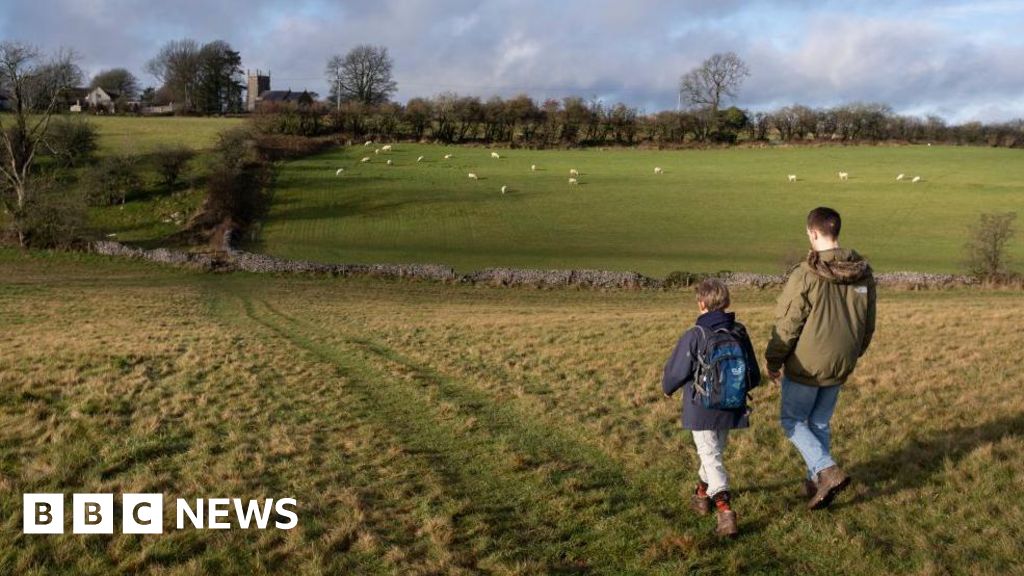Thousands of miles of footpaths that faced being lost forever could now be saved after the government committed to lifting a deadline for all rights of ways in England to be mapped.
People had been given until 2031 to have all historic but unrecorded public paths and bridleways added to the nation’s official “definitive map”.
The government said scrapping the cut-off date would give councils time to assess whether paths met the requirements.
Walking campaigners have welcomed the announcement but the National Farmers’ Union (NFU) said removing the deadline would mean claims would “continue to disrupt many farm businesses for years to come”.
Legislation requiring local authorities to create a “definitive map” showing public rights of way in their area was passed in 1949.
But the documents have been kept under continuous review, meaning anyone with appropriate evidence could apply for a path to be added.
There are estimated to be more than 40,000 miles of rights of way in England which are not officially recorded.
The previous Conservative government had also planned to scrap the cut off date for historic paths to be registered but later decided to extend it from 2026 to 2031, saying this would provide more certainty for landowners, councils and users.
But the Local Government Association said financial pressures had left councils with limited resources to process applications, making the 2031 deadline “a tall order unlikely to be met”.
Research by the BBC found that as of March this year, nearly 8,000 requests for paths to be added to the official map were waiting to be processed.
Once a right of way has been established, the local authority and landowner are legally responsible for maintaining it.
Kate Ashbrook, general secretary of the Open Spaces Society, said if paths were not recorded developers might build on them or landowners might plant crops.
“We need to get those paths put on the map so we know where they are, so we can use and enjoy them,” she said.
“The 2031 cut-off was designed to stop us from doing that and would have meant that all those public paths would have remained a secret, would have been lost.”
The government is planning to repeal the cut-off date when parliamentary time allows.
However, NFU deputy president David Exwood said public access needed to be balanced with productive farming.
“This current plan simply perpetuates an outdated focus on routes that haven’t been used for centuries,” he said.
“Instead, the focus should be on a network fit for the future that encourages responsible use, respects working farmland, and promotes safety in accordance with the Countryside Code.”
He added that the government’s announcement did not provide a clear explanation of how the backlog of applications would be cleared, “continuing the strain on local authorities”.
Ross Maloney, chief executive of the Ramblers charity, said the announcement ended “the threat to thousands of miles of historic rights of way in England”.
“Not only are these paths an integral part of our shared heritage, but they will also have a critical role to play in the future by helping people live healthier, happier lives,” he added.
Minister for Access Baroness Hayman said: “Our countryside and green spaces are a source of great national pride, but too many people across the country are left without access to the great outdoors.
“These well-trodden routes, many of which have been in place for hundreds of years, are a part of our shared heritage and it is critical that we bring forward these measures to protect their long-term future.”

